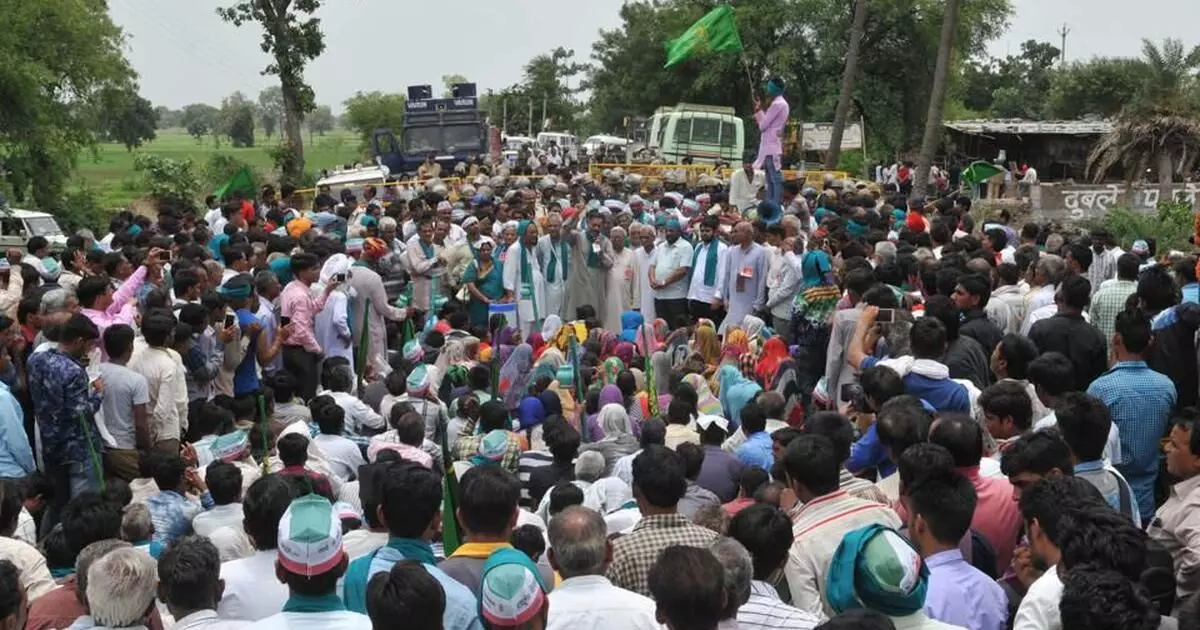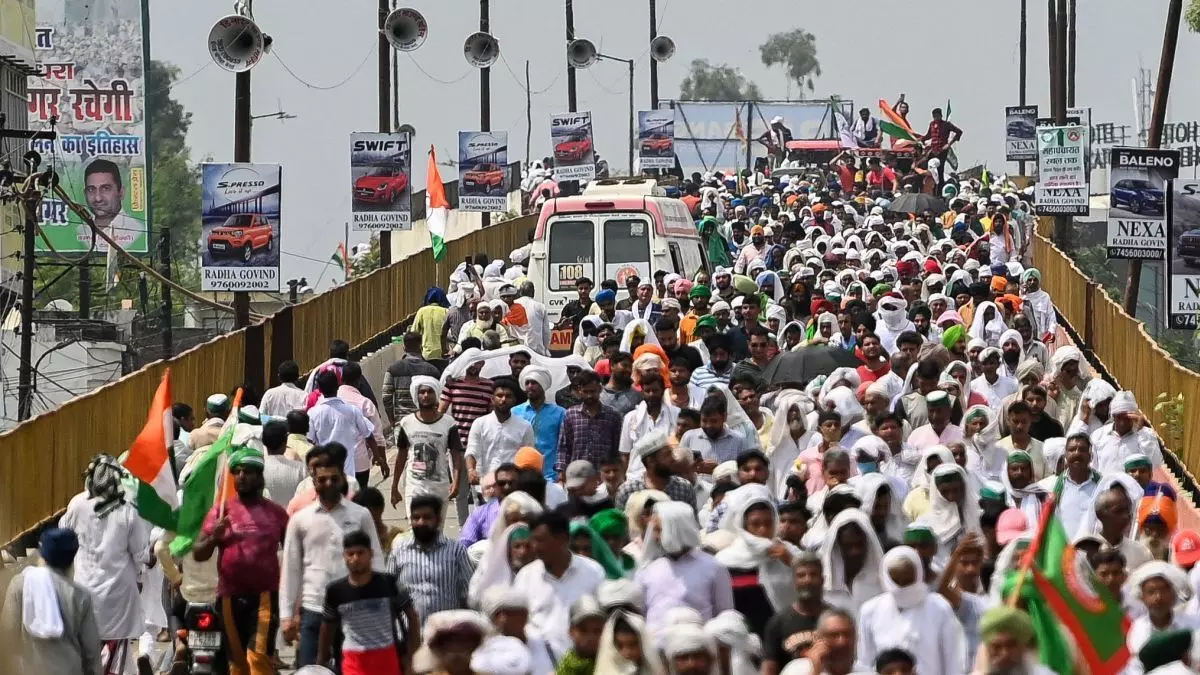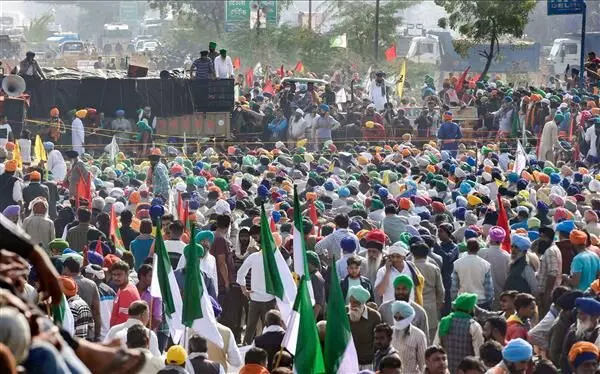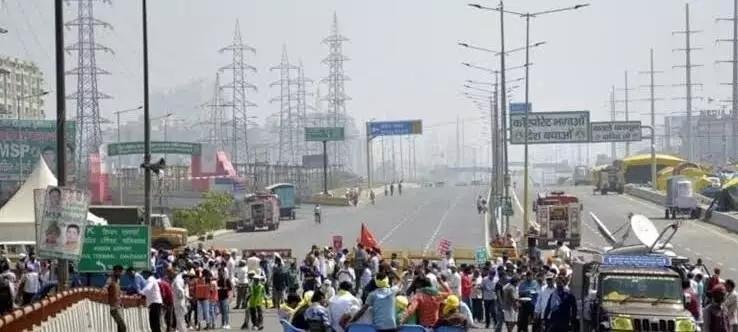
Who will reap the harvest from this field?
text_fieldsLast month, the central government was forced to repeal three anti-farmer laws after a year-long struggle by farmers across the country, which claimed nearly 700 lives. The Prime Minister made a dramatic announcement of the abrupt withdrawal of the laws on November 19 or Guru Nanak Jayanti Day, at a time when farmers' organizations were determined to intensify the struggle and take a tough stand against the BJP in Uttar Pradesh and Punjab, where elections are to be held next year. On November 29, the controversial agricultural laws were withdrawn in Parliament without a debate, as they were passed. These laws were only for the benefit of the two monopolies, and two crony capitalists of the Central Government and would do no good to the farmers. Realizing this, the agitating farmers also called for a boycott of the products of the Ambani-Adani groups. As the monopolies took a beating in the boycott, they even came out with explanatory notes that those were no anti-farmer schemes. The people had then Hoped that taking lessons from all this and gauging the force of the farmer agitation, the Centre and their favourites had bent their ways. But what transpired thence would only convince the nation that regarless of the implementation or withdrawal of farm laws, the project of putting the country under the yoke of monopolies would continue. That came in display through the agreement concluded between the largest public sector bank, State Bank of India, and the non-banking financial institution, Adani Capital Private Limited.
SBI and Adani Capital have teamed up to provide loans for agricultural modernization and mechanization. In an official statement they said that through the partnership it would be able to target farmer customers in the interior hinterland of the country looking for adoption of farm mechanisation to enhance productivity of crops." How absurd is this argument"! SBI is a nationwide banking network with over 22,000 branches, 45 crore customers and assets of over Rs 48 lakh crore. There are 1.37 crore agricultural accounts. About Rs 2 lakh crore has been given as loans. Even if we count the total number of customers the new partner financial institution has befriended to expand the scope of operations, it would be only slightly more than the total number of SBI branches in the country. Their debt is in billions. What does SBI expect to gain by shouldering this liability-ridden institution? If any farm is to be expanded, tractors or any other machinery is to be purchased or the warehouses are to be upgraded, the farmers will be compelled to comply with the terms and conditions laid down by the company. The company may have put forward a number of interests in terms of seeds and pesticides. That is to say, it is not SBI or the farmers but the private company that steals into it like parasites in this joint venture that will make the gains. We cannot save farmers and ordinary people from debt-caused suicides without preventing not only the government's public crackdown on agriculture and finance, but also such covert lightning strikes.
The former Kerala finance minister and economist Thomas Isaac has raised a demand that the central government should explain the deal since the board that took the decision had representatives from the Reserve Bank and the finance ministry. There is ample reason to suspect that all these transactions are in line with the plans drawn up by the Central Government, which is in a hurry to privatize public sector banks. As Rakesh Tikait, a farmer leader who has declared support for the bank employees' strike in the country, has pointed out, there are a number of legal amendments in the pipeline that are as dangerous as the agricultural bills. There is no alternative but to identify and resist them in order to protect the country's sovereignty.



























